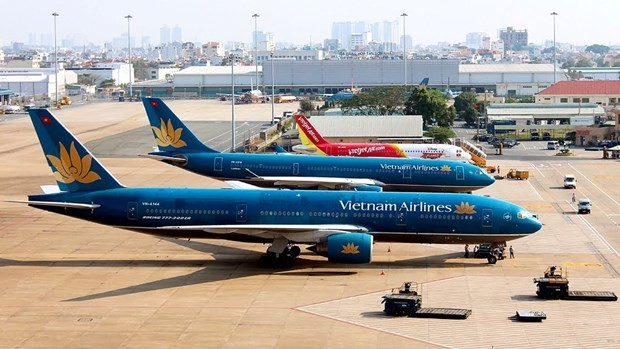
Viet Nam to resume regular flights to 7 countries, territories
Latest
 |
| CAAV agrees to halt flights from African countries over Omicron concerns |
Seven countries and territories - the US, Japan, Singapore, Cambodia, Thailand, Taiwan (China) and the Republic of Korea (RoK) - have basically agreed with Viet Nam's proposal on a plan to resume regular international routes, according to the Civil Aviation Authority of Viet Nam (CAAV).
Statistics from the authority show that in the first seven days after re-operating regular international flights from January 1, there were a total of 64 flights carrying 7,847 passengers to Viet Nam.
Of these, there are 18 commercial flights, 25 “combo” ones and 21 for experts and tourists.
A representative of the national flag carrier Vietnam Airlines said it has reopened regular commercial flights to carry passengers to Viet Nam from the US (4 flights/week), Japan (3), the RoK (2), Taiwan (1), Singapore (2), Thailand (2), and Cambodia (4).
Vietnam Airlines plans to resume flights to Australia, which is hoped to serve the increasing demand of Vietnamese expats in Australia who look to return home for the Lunar New Year (Tet) festival, and prevent the risk of market domination by international airlines operating through other gateways.
The Ministry of Transport has proposed the Government instruct relevant ministries and sectors to handle procedures relating to COVID-19 prevention and control works on international arrivals, including RT-PRC test, health declaration and vaccine passport.
The CAAV will continue to closely monitor the implementation of the pilot phase of the plan, and promote negotiations with aviation authorities of countries and territories that are deploying the plan in order to soon resume regular international flights with Viet Nam, and increase the frequency of flights in suitable conditions.
Deputy Minister of Transport Le Anh Tuan asked the CAAV to urgently work with the aviation authority of Australia to be ready for restoring regular international flights between the two countries, and consider Vietnamese citizens' demand for returning home, thus proposing specific destinations and exploitation frequency.















